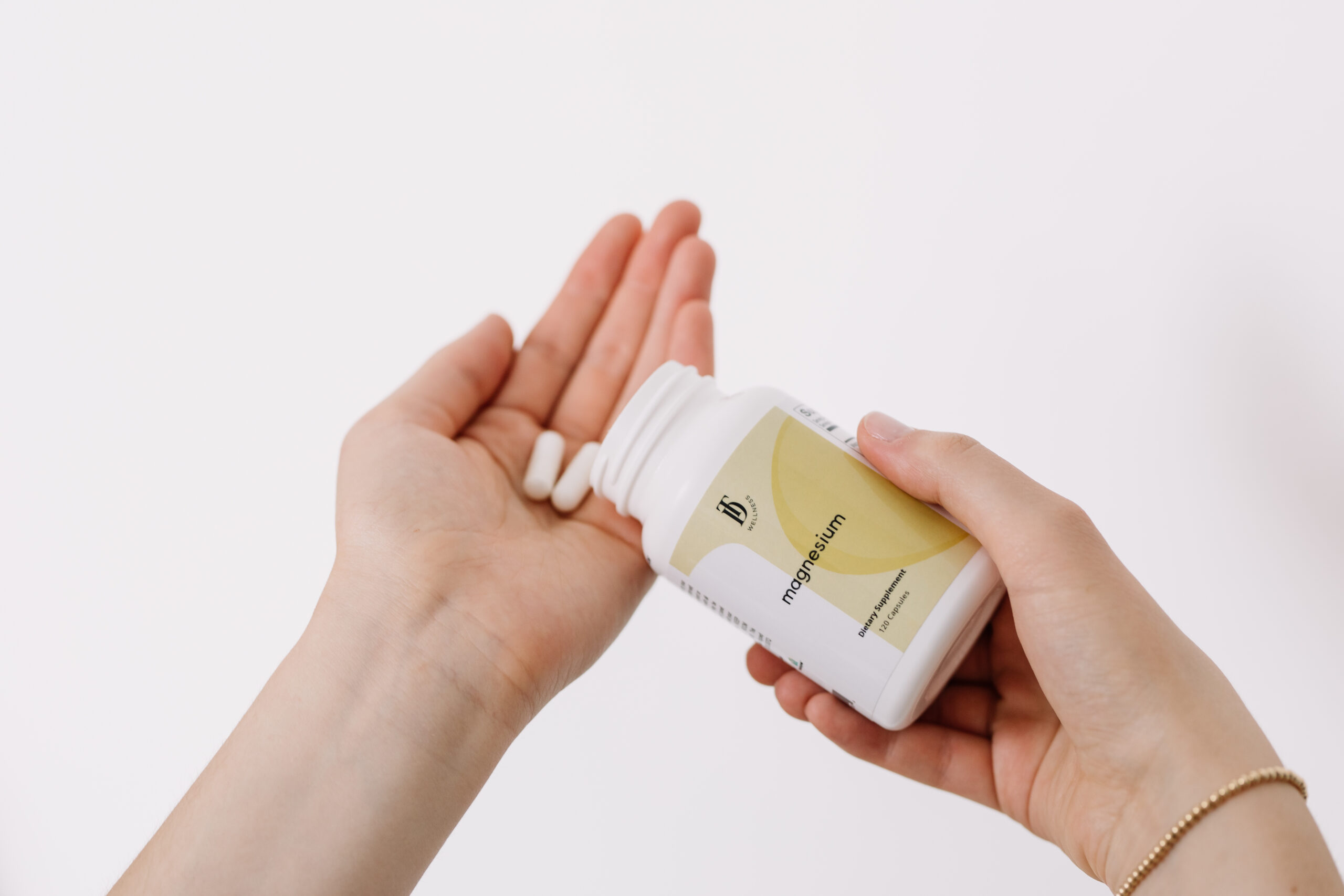Do You Know What’s Causing Your Constipation?

When was the last time you had a bowel movement? If you are thinking, “Ahh Taylor, I honestly don’t remember”, then we have a problem. Generally, you should have at least one fully formed, complete bowel movement every day, where you don’t have to strain. You could even possibly have two or three, as long as they are “healthy” looking. Constipation is a symptom that I frequently see in my practice. While sometimes it’s caused by diet or routine changes, it may also be caused by a more serious underlying issue.
Conventional Vs Functional Medicine Approach to Constipation
Many conventional medicine doctors may brush this off as normal for people and suggest laxatives to help encourage a bowel movement. However, this just puts a bandaid on the real issue. Constipation can be a sign that something isn’t right in your body.
As a functional medicine provider, I look deeper into what may be causing your symptoms. Instead of covering up the symptoms, I use specialized lab testing and analysis to determine what is causing your constipation, and I create a treatment plan unique to you.
If you don’t address your constipation problems, it could lead to hyper-absorption of hormones like estrogen, increasing your risk for other health issues. You can see how health issues commonly stack on top of each other. When you think you get to the root cause, there actually may be another root cause… This is why it’s important to get ongoing support from a provider who works one on one with you over a longer period of time (no quick fixes here!).
In the meantime, I will discuss some probable reasons why you may be experiencing constipation, and what more serious issues could be causing it.
Reasons For Your Constipation
SIBO
Small intestinal bacterial overgrowth is when bacteria that usually reside in your large intestine overgrow and travel into your small intestine. Your small intestine is where most of your nutrients are absorbed and usually only contain a small amount of bacteria. Some types of SIBO can cause a methane gas build-up, which can slow down the transit time and cause constipation. Because there are two types of SIBO- methane and hydrogen dominant- it’s important to get tested and be sure your provider uses the most accurate test. The Lactulose Breath Test will tell you which gas is more dominant, helping your provider with the best treatment plan.
Check out my blog, “Could You Be Struggling With SIBO?” for more information.
Dysbiosis
Your gut is made up of trillions of bacteria, both beneficial strains, and harmful ones. Dysbiosis is when your gut microbiome is imbalanced. Your bad bugs flourish and overtake your good bugs. This can cause a number of issues because those helpful bacteria play a role in keeping your gut lining and mucosal barrier strong as well as supporting healthy digestion. Those healthy bacteria also help break down and absorb the food you consume.
If your gut contains more harmful bacteria, it can impair peristalsis, affecting the wave-like muscle contractions that move your food down the digestive tract. This is what could be causing your constipation. If this is the reason you are experiencing constipation, the dysbiosis may be causing other adverse side effects in your body- hormone imbalance, impacts moods, suppressed immune system, etc. If it’s not already causing other issues, it most likely will in the future if not corrected.
Food Sensitivities
Food sensitivities can cause a number of symptoms, including constipation. This one is tricky for a lot of people because many people don’t associate certain food with their symptoms. While you can try to figure out what is causing your constipation by keeping a food journal or doing an elimination diet, you may want to take a food sensitivity test to find out for sure. Common food sensitivities I see in my practice are gluten, dairy, and eggs.
I use this test with my clients because it’s common for people to be sensitive to at least one food, causing them hidden inflammation, poor digestion, and constipation.. I also want to add that if you are reacting to a lot of foods, it is likely due to an underlying gut issue, and in that case, stool testing can be helpful.
Low Thyroid Function
Constipation is one of the more common symptoms of a thyroid issue. It’s seen a lot in my patients with hypothyroidism (low thyroid). When your body doesn’t have enough thyroid hormone, it impacts the ability for normal bodily functions, including digestion. Reduced peristalsis is also seen in hypothyroid patients with up to 15% of patients having fewer than 3 bowel movements weekly.
Parasites
Did you know that even healthy people can have parasites? People can go years without knowing that they have a parasite. They may be asymptomatic for years until something causes the symptoms to flare up. Just like with bacteria, a certain amount is okay (and can even be beneficial), yet when it gets out of control, we see health issues arise.
Parasites can cause chronic inflammation in the body. This can lead to your colon dilating and becoming thicker, impacting its functioning. The side effects of having a parasite can decrease your colonic motility, causing your constipation.
Magnesium Deficiency
Your magnesium stores may be low if you find yourself experiencing constipation. This is because magnesium plays a role in drawing water into the stool, making it softer and easier to pass. If you don’t have enough magnesium, the bolus of food becomes dry and hard, inhibiting it from moving down your digestive tract, leading to constipation. You may be at a higher risk for magnesium deficiency if you are on birth control, drink alcohol, have type 2 diabetes, if you’re on diuretics, or if you have a poor diet consisting of large amounts of processed foods. My TDW Magnesium contains 3 different types of magnesium, including magnesium citrate which helps with constipation.
Test Don’t Guess With A Functional Medicine Provider
It’s essential to test and not guess when trying to fix your constipation issues. I use several tests with my clients to figure out exactly what is “off” in the body, leading to your constipation. I use GI-MAP stool testing, SIBO Breath testing, food sensitivity testing as well as a mineral and nutrient test.
In the meantime, to help support healthy digestion and bowel movements, make sure you:
-
Drink enough water
-
Exercise regularly
-
Manage your stress
-
Avoid toxin exposures
-
Eat an abundance of whole organic foods
-
Limit processed foods and sugars
Get Your Gut Right
If you need access to a stool test, a gut health expert, and personalized protocols, the Get Your Gut Right program might be the right fit for you. This is a comprehensive health reset program that also focuses on nutrition, detox pathways, the nervous system, clean environment, and more. Click HERE to learn more.
Stay Updated With Exciting News at Taylor Dukes Wellness!
We are always working on new ways to serve you on your health journey. Be the first to know about new offerings, health articles, and more by clicking here and filling out your information so we can be in touch.
Share This Post:
Your Wellness Deep Dive
- Be the first to learn about new healthy living resources, blog posts, and exclusive TDW offerings by getting on my insider list.
- Find healthy living products with ingredients you can trust – the same ones I personally use for myself and my family – in the TDW Shop. Check out our protein powders, electrolytes, supplements, and more!
- Get personalized support through the TDW Community. When you become a member, you get access to functional medicine expertise from me and my team, functional medicine lab testing and 1:1 consults, a digital library of exclusive wellness content, live monthly Q&As with me, and so much more!
YOU MAY ALSO LIKE:
Helping you get your gut right, improve energy, boost immunity, balance hormones, sleep better and look + feel your best
DISCLAIMER
PRIVACY POLICY
TERMS + CONDITIONS
ACCESSIBILITY
© 2025 Taylor Dukes Wellness
LEARN
SHOP
ABOUT
TDW Community
Free Guides
Blog
TDW Store
Fullscript
About Taylor
Press
Contact
COOKIE POLICY
SITE CREDIT
Trusted Products



